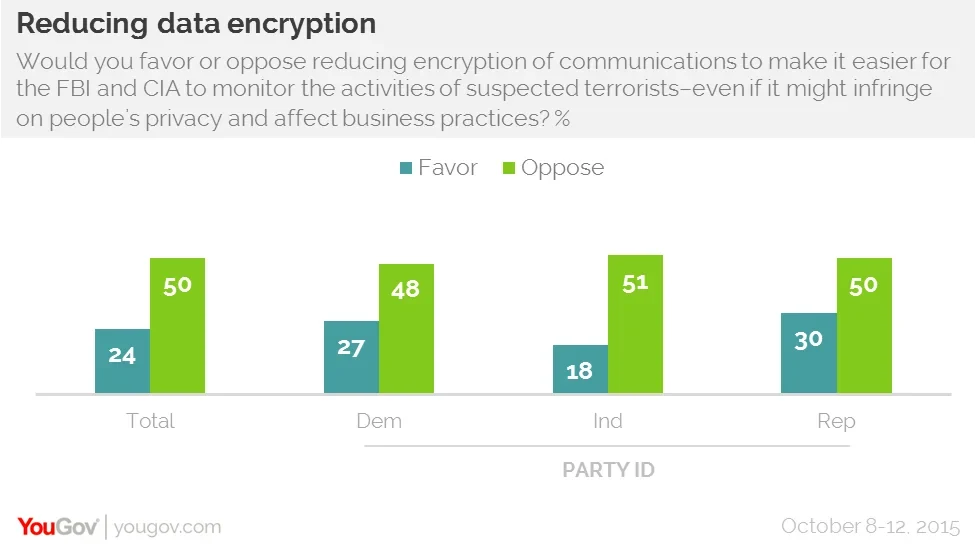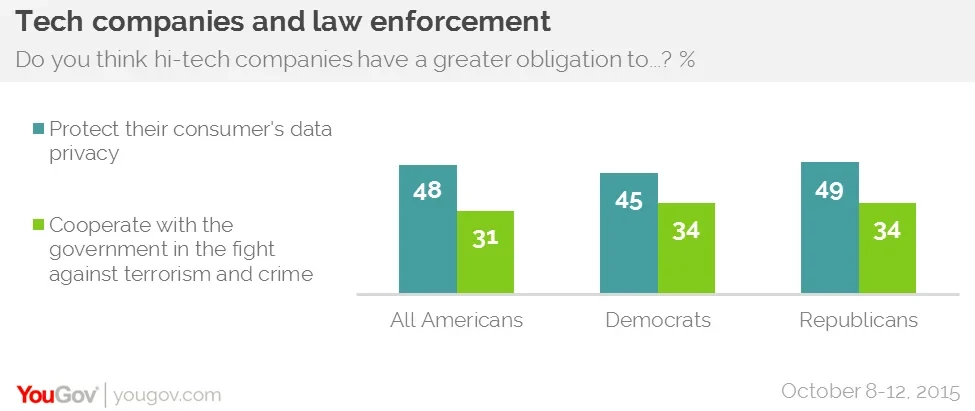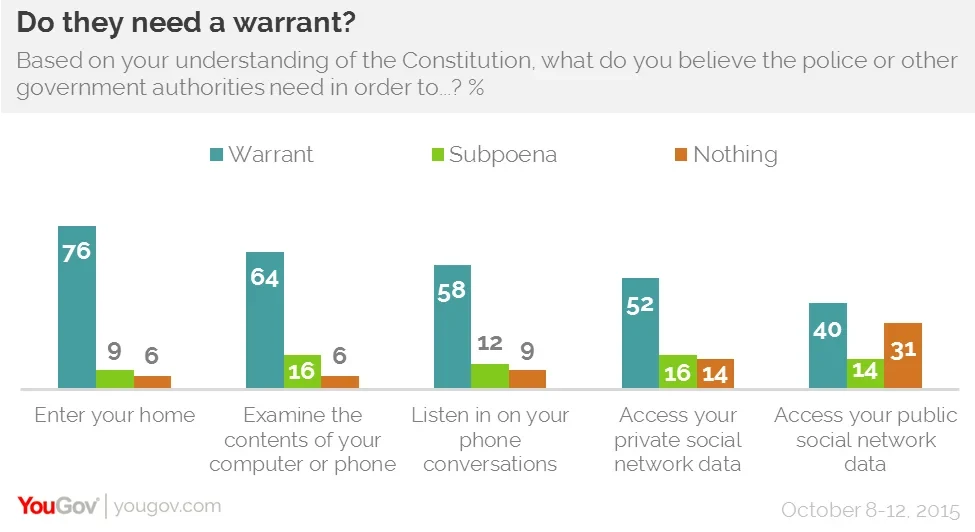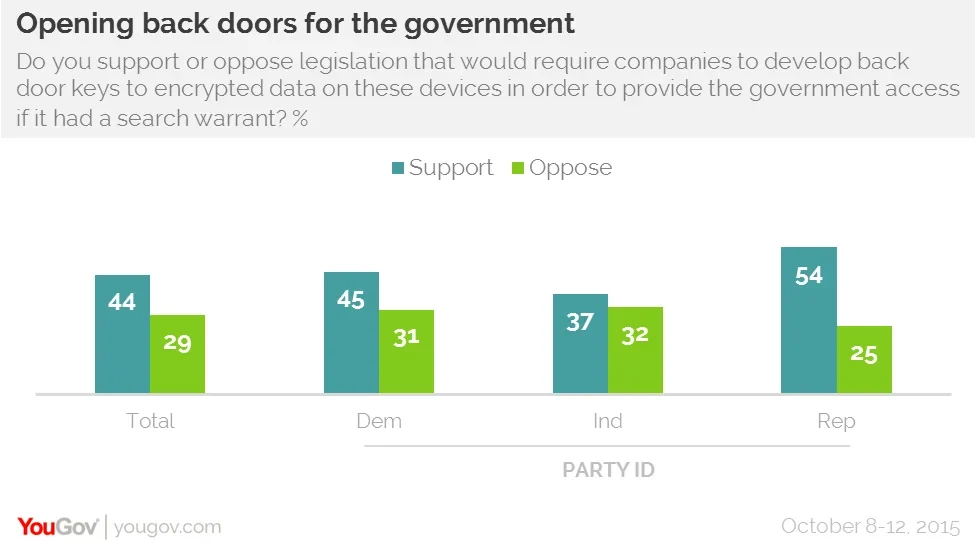Most Americans oppose making it easier for the government to pry into confidential communications, and many think that tech companies main responsibility is to protect data privacy not help law enforcement
Data privacy matters to Americans, who worry about the possibility of government surveillance, and would set limits on what government can do. Unlike so many other current issues, this is one with few partisan differences in opinion. The latest Economist/YouGov Poll finds Americans of all political persuasions opposed to reducing encryption capabilities to make it easier for the FBI and CIA to monitor suspected terrorists.

Those 65 and older are the most supportive, though even in this group more are opposed to easing encryption access by the CIA and FBI. 33% of senior citizens are in favor; 43% are not.
Data privacy issues are now prominent in news reports. A European Union Court has ruled against existing provisions that allow data transfer between the United States and the EU, believing that the U.S. “Safe Harbor” provisions do not protect data privacy. Former NSA contractor and whistleblower Edward Snowden, along with others, has proposed international standards for data transfer and privacy. Two major bills are now proceeding through Congress dealing with data protection and government – the Cybersecurity Information Sharing Act and the Protecting Cyber Networks Act. Both deal with protection against cyber threats to public and private entities and propose procedures for how that information can be shared with the government.
What is striking in the latest poll is how restrictive Americans want government action to be when it comes to personal data access. They say they are very concerned about data security, with more saying high tech companies have an obligation to protect data privacy than believing they should cooperate with government by providing data that could prevent crime or terrorism. This belief also crosses party lines.

Two out of three are concerned about government surveillance of Americans’ data and electronic communications, with 29% claiming to be “very” concerned. Conservatives are more worried than liberals: 25% of liberals say they are very concerned, compared with 35% of conservatives.
Consequently, perhaps, Americans believe the Constitution clearly limits government access to personal information to situations when a warrant or a subpoena has been obtained. Majorities, in fact, say that a warrant – issued by a judge – is necessary in order to listen in to phone conversations, read emails, examine the contents of a laptop, access private social network information, and track movements via a GPS device.
Only when it comes to physically entering a home do more Americans believe a warrant is required.

Fewer think accessing public social media data, finding out what books someone has checked out of a library (or what movies they have rented), street searches or asking for ID requires a warrant, although a significant percentage still believe warrants are required in those circumstances. There is little difference in the answers of Republicans and Democrats on all these items.
There is some support – though not majority support -- for allowing the government to have back door access to encryption systems, although, once again, only with a warrant.

This is one of the few questions in the poll where Republicans and Democrats differ. A majority of Republicans say they are willing to allow government access. Independents are closely divided for and against. Younger adults are also split on the question.
See the Economist/YouGov results
Economist/YouGov poll archives can be found here.









